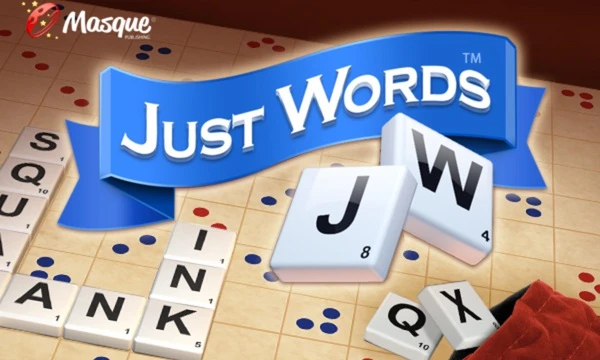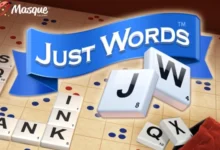Just Words: The Power Behind What We Say

Just Words are fascinating. They’re the invisible threads that weave human experience together, shaping our thoughts, building our identities, and helping us make sense of the chaos around us. You hear them all the time—sometimes whispered, screamed, often written, rarely forgotten. They might seem like just words, but they carry weight, power, and memory. There’s so much more to language than meets the ear.
We often toss around phrases without realising how deeply they affect us and those around us. Whether it’s a heartfelt compliment or a passing insult, words settle into people. They can comfort or destroy. They can mend or break. Calling them just words feels like dismissing the storm they can bring or the peace they can offer. And that’s what makes them so endlessly captivating.
The Illusion of “Just Words”
When someone says, “it’s just words,” what they’re often doing is trying to downplay the emotional or psychological impact of language. But the truth is that the idea of words being “just words” is misleading. Even the simplest sentence can leave an imprint on the human psyche. Think of how your favourite quote lives rent-free in your mind. It’s not because it’s extravagant or poetic—it’s because it resonated deeply.
Words are the tools we use to understand our emotions, to describe our experiences, and to share our reality. When reduced to just words, we risk ignoring how language influences our worldview. There’s a reason why books have been banned, speeches have sparked revolutions, and love letters have shifted the course of history. They were never just words. They were catalysts.
How Words Shape Identity
You begin constructing your identity with language. From the time you’re a child, you’re taught who you are through words. People tell you what you’re good at, what you’re not, what you should be afraid of, and what you should aspire to. The labels we’re given and the ones we choose become a part of our mental framework.
Let’s say someone constantly hears they’re not smart enough. That message sinks in, and pretty soon, that individual stops raising their hand in class, avoids intellectual challenges, and limits their potential. It wasn’t a physical restraint—it was just words. But those words were enough to shape an entire self-concept.
Emotional Impact: More Than Meets the Eye
Ever been lifted by a kind compliment or crushed by a sharp critique? That’s not a coincidence. That’s the emotional gravity of words at play. Emotional responses are directly linked to how language interacts with memory and self-esteem. A single sentence can remind someone of a past joy or reopen a wound they thought had healed.
This is why it’s important to acknowledge that they’re never just words. Dismissive remarks, microaggressions, or backhanded compliments may seem harmless, but they leave marks. They stick. They echo. On the flip side, sincere praise, expressions of love, or compassionate feedback can shift someone’s entire day or even their life trajectory.
The Power of Repetition
Repetition is where words become ritual. Say something enough times, and it becomes a belief. This is how mantras work. It’s how propaganda thrives. It’s also how self-love or self-doubt solidifies. Telling yourself “I can’t do this” over and over is like carving those words into your mindset. Before long, they feel like the truth.
It’s equally possible to rewrite the narrative. Positive affirmations aren’t fluff—they’re small rewires to the brain. Repeated often, even the most sceptical mind can start to believe in the possibility again. The phrases we allow into our daily mental loops aren’t just words; they’re the programming code of the subconscious.
Social Influence and Language
In social spaces, language becomes culture. Slang, idioms, and phrases often define the community that uses them. Groups adopt specific language to establish identity, values, and social cues. It’s a form of bonding. But it also creates in-groups and out-groups. Inclusion or exclusion can hinge on understanding shared language.
This dynamic has power. Think about how language shapes discourse on gender, race, politics, or even trends. Terms evolve—sometimes rapidly—and keeping up with them means staying socially relevant. They aren’t just words; they’re markers of awareness, empathy, and connection. Or the lack thereof.
Creative Expression and the Magic of Writing
Writers understand that nothing is just words. Whether it’s poetry, screenwriting, or journaling, each word is deliberate. It carries emotional tone, style, and intent. Writers play with language like artists with colour. They know how a single switch from “cold” to “frigid” changes the mood of a paragraph.
Through storytelling, people find catharsis. Readers escape or confront realities they can’t face in daily life. This ability to affect someone emotionally, mentally, or spiritually using nothing more than language is one of the oldest and most powerful forms of magic. They’re not just words. They’re alchemy.
Digital Communication and Its Complications
With the rise of texting, social media, and memes, the weight of language has evolved. Messages are now more abbreviated, layered with subtext, or shrouded in irony. Tone becomes harder to detect. Emojis try to make up for that gap, but sometimes they fail. Misunderstandings escalate fast, often because of the illusion that it was just words.
Online spaces amplify both the beauty and danger of language. Support groups thrive because of encouraging comments. Yet, trolling and harassment flourish in the same environment. Words on a screen might feel less real, but the hurt they cause is all too tangible. Context collapses, and we’re left trying to interpret meaning through limited characters and infinite nuance.
Words in Conflict and Healing
Conflict often begins with a misunderstanding, and that usually comes down to words. The wrong phrase, a poorly timed joke, or a misinterpretation can cause rifts that last for years. Wars of ideology begin with speeches. Relationships dissolve over miscommunication. It’s never just words; it’s how those words hit the heart.
But words are also how we heal. Apologies, declarations of love, affirmations, and conversations of reconciliation—these all require language. When someone says “I hear you” or “I’m sorry,” they’re using words to bridge emotional gaps. The right words can feel like balm. They can stitch up wounds. They can restart relationships thought to be over.
Advertising and Manipulation
Marketing is the science of making just words do heavy lifting. Every slogan, jingle, or brand message is carefully crafted to influence you. These words aren’t accidental. They’re backed by psychological studies, testing, and strategic intent. Think about a brand you love. Now think about the words associated with it. Chances are, they’re not just words; they’re emotional triggers.
Even political campaigns rely heavily on catchphrases and buzzwords. They’re repeated until belief forms, whether or not there’s depth behind them. People act on these messages, aligning their values, spending money, or casting votes based on the emotional responses they trigger. It’s strategic language dressed up to look casual.
Conclusion: Never Just Words
At the end of the day, calling them just words ignores their profound influence. Language can be both sword and shield, prison and passport. It’s the substance of our internal dialogues and the channel for our external expressions. It can oppress or liberate. To speak is to shape reality. To write is to leave something behind. And to listen—to truly listen—is to honour that none of it is ever just words.
So next time you hear someone say something cutting or kind, remember that what you’re experiencing isn’t just words. It’s someone reaching into the intangible andmoulding something real. And that’s anything but ordinary.

